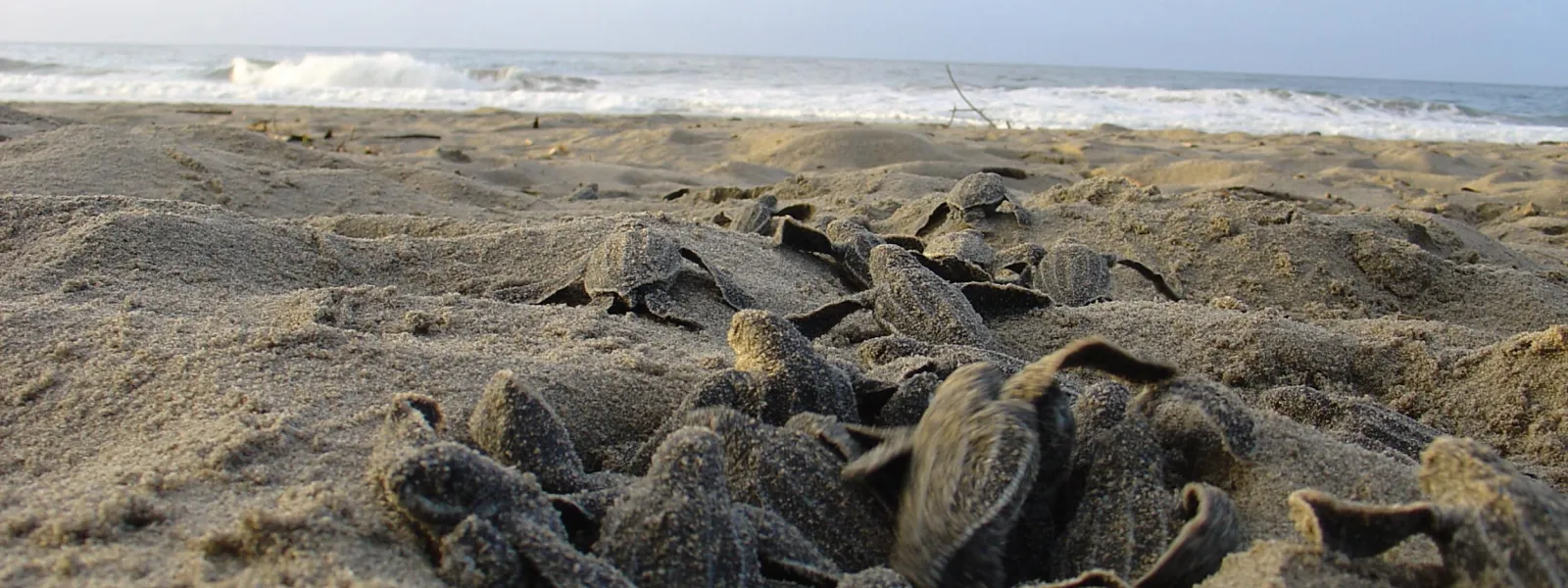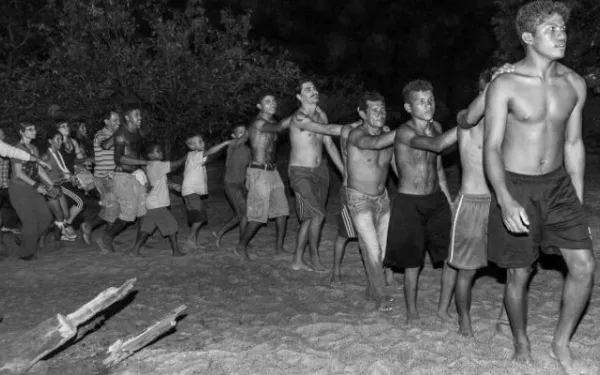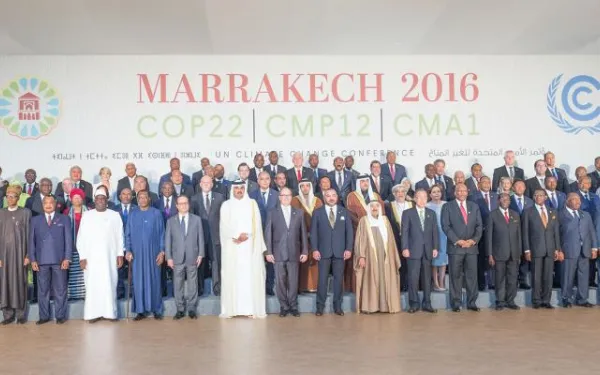
Project
Victory: Haven for leatherback sea turtles declared off-limits
In two separate rulings in May 2008, the Costa Rican government stood up for endangered leatherback sea turtles against business interests intent on building within their protected habitat.
A relative of dinosaurs, the endangered leatherback sea turtle has continually found its home in Costa Rica under threat. Poor planning and lack of oversight destroyed its nesting beaches in Flamingo and Tamarindo.
This time developers had their eye on the Leatherback National Marine Park (LNMP), home to some of the most important Leatherback nesting beaches in the Eastern Pacific Ocean.
A municipal zoning regulation was enacted that would authorize construction in part of the LNMP. However, AIDA and its local partner CEDARENA, together with the Leatherback Trust, successfully defended the park.
The Constitutional Chamber of the Costa Rican Supreme Court nullified the municipal zoning regulation, safeguarding the Leatherback sea turtles and their nesting beaches. This ruling closely followed another court victory by AIDA, CEDARENA, and Justice for Nature that required the government to expropriate the private lands within the LNMP, otherwise destined to be tourist playgrounds.
The leatherback sea turtle will continue to face threats from tourism development, fishing, egg poaching, and pollution. However, AIDA and its partners have shown that the law can be used to make a powerful difference.
Related projects

Letter to Green Climate Fund Board: Improve Decision Making
Letter signed by 70 international civil society organizations: As members of civil society following the Green Climate Fund (GCF), we are writing to express our concern about the way the Board reached some of its most important decisions during the 14th Board Meeting (B.14). We would also like to share some thoughts on how to improve upon this process in the future. We are especially referring to the practice of “package approval” that was used to approve funding proposals and new accredited entities. Weak process. The Board approved 10 proposals worth $745 million without discussing each one separately. The Board’s assessment of each of the funding proposals should be made individually and with the utmost care, to ensure that the objectives, principles, policies, and operational modalities of the Fund are respected and complied with. Furthermore, there was no opportunity for active observers to highlight individual comments for each of the funding proposals (they could merely air some concerns during the overarching discussion of all funding proposals). The same can be said with regard to the package approval of eight accredited entities. There was no public discussion of the merits and/or shortcomings of each approved applicant entity and no possibility of civil society input. Civil society has vital contributions to make, and for our engagement to be meaningful, active observers must be given the opportunity to share important points regarding each proposal and accreditation application during Board meetings. Indeed, the Board’s way of working has actually been in conflict with the GCF’s own Governing Instrument, which states that “the Fund will operate in a transparent and accountable manner”. Approval despite clear failures of GCF policy compliance. The Board repeatedly overlooked the failure of a number of proposals to comply with GCF policies and procedures. For example, public notification for a number of projects was out of compliance with the Fund’s information disclosure policy, which requires a 120-day notification period for proposals with high social and environmental risk. Mandatory gender action plans were missing from several projects, and stakeholder consultations in some cases were highly inadequate. Yet the Board approved all of the projects with one package decision. The Board even pushed through proposals without the requisite guiding policy in place. For example, programs to be implemented via sub-projects were approved, yet the GCF does not have a policy regarding whether or not high risk sub-projects must come back to the Board for approval. We believe they should, to ensure the GCF’s accountability, and to preempt some of the serious environmental, development, and social shortcomings widely seen at other multilateral institutions that finance sub-projects via financial intermediaries. Precedent-setting. While the Board stated that “the approach taken to approving funding proposals at B.14 does not constitute a precedent,” we are concerned that, at this point, the Board has taken such an approach multiple times. Steps to put a stop to these modalities becoming the de facto modus operandi must be taken in the lead up to B.15, including: Timely public disclosure on the GCF’s own website that, at minimum, follows GCF rules (i.e. 120 days for ESIAs for high risk funding proposals, 30 days for medium risk, and three weeks prior to board meetings for all other materials). All annexes and the Secretariat’s due diligence should also be disclosed for funding proposals; Publication of applications for accreditation as soon as they are filed, as well as operationalization of formal mechanisms for third party input (from affected communities, indigenous peoples, civil society, etc.); Individual consideration of each funding proposal and each applicant for accreditation during public sessions of the Board; Opportunities to consider civil society interventions during the debate on each individual proposal, rather than at the end of agenda items; Where formal (or informal) working groups are established to consider conditions to be placed on proposals, there should be a clear process to allow the consideration of civil society feedback, at a minimum in writing, but preferably through the direct participation of the CSO active observers or their alternates; Discussions on more complex and/or controversial proposals require several rounds of debate. In these cases, civil society observers should be given the opportunity to make further interventions responding to new proposals, conditions and amendments. Civil society observers are committed to working with the Board to improve the accountability and transparency of Board decisions, in particular on funding and accreditation approvals. As a learning institution, the GCF needs to take the time to look at the merits of individual proposals and applicants in order to clearly elaborate how they can support the paradigm shift in recipient countries. We therefore urge the Board to better prioritize valuable time during the upcoming Board meetings to allow for meaningful discussions.
Read more
In the Hamlet of Mïratu, the Juruna mourn the death of Jarliel
By Marcelo Salazar, Instituto Socioambiental (ISA) AIDA translation of a blog originally published by ISA Jarliel died while diving for fish in water 25 meters deep. One of his brothers blames the Belo Monte Dam, which pushed all the fish into deeper waters, forcing fishermen to follow. Before the dam, fish were plentiful in the waterfalls and shallows of the river. Jarliel Juruna, known as Jarla, died on October 26, 2016 while diving for brown acari, a common Amazonian catfish. He was 20 years old. Jarliel was roughly 25 meters deep when he stopped breathing; his lifeless body floated to the surface. It was a tragedy for Mïratu, in the Paquiçamba indigenous territory; it was a tragedy for the Juruna people* of the Volta Grande; and it was a tragedy for the Xingu River, in the Brazilian Amazon. He left his parents, siblings, wife, and newborn son, all in shock. They had no idea where to go or what to do next. In near total silence, Giliarde Juruna, chief of Mïratu and one of Jarliel’s brothers, kept his gaze fixed on the forest behind the straw house that holds the community kitchen. Another brother, Jair Juruna, known as Negão, was outraged: "We’ve never had to fish acari in such deep waters. But because of the dam, the fish that have always been right here, in the waterfalls and in the shallows, have disappeared. And we have families to support. Norte Energía [the dam-building consortium] is playing with our lives. Where are the productive projects? If things were working, we would have other jobs and we wouldn’t need to risk our lives to support our families. Now look what’s happened." On the other side of the continent, Bel Juruna was in Peru representing her people in a meeting of Latin American indigenous leaders. She was speaking about the violence that the Belo Monte operators brought to her community and the people of the Xingu. When she heard the news, she was devastated. She wasn’t able get home in time to attend Jarliel’s burial; to say goodbye to her youngest brother, whom she had helped to raise. Jarla was a happy and playful young man, dedicated, completing his high school degree and dreaming of college. He was one of his village’s fighters, present in many of the peaceful occupations of the Belo Monte Dam complex, fighting for the rights of the indigenous people of the Xingu. One day, the full story behind Belo Monte will be told. The very real impacts the dam has had on the life of the people of the Xingu will be recognized. May Jarla now join the great Mïratu fighters on another plane—and unite his efforts with those who remain on Earth to fight against Belo Monte and against other forms of destruction of the indigenous and traditional communities of the Xingu. *Proprietors of the River The Yudja, or Juruna (as they’re know in the region), live on the islands and banks of the Xingu. They are known as “proprietors of the river” for their great ancestral knowledge of its flow, and for having migrated for centuries from the mouth of the Xingu to its headwaters. Mïratu, one of the villages in Paquiçamba indigenous territory, sits roughly 10 km below one of Belo Monte’s reservoirs. The hamlet suffers various impacts from the dam, including changes in their traditional fisheries. In collaboration with (the?) Universidad Federal do Pará and ISA, and with the support of the Mott Foundation, the Juruna people are engaged in independent monitoring of their fisheries, which reveals the damages suffered in recent years. Jariel was one of the monitors in Mïratu.
Read more
Climate finance advances, but lacks ambition
The 22nd Conference of the Parties to the United Nations Framework Convention on Climate Change (COP22) was held in Morocco from November 7-18, 2016. The delegates made progress on issues related to finance for developing countries facing the impacts of climate change. But their decisions needed to be more ambitious. Global governments must provide adequate and predictable financial contributions so countries can plan and execute adaptation and mitigation strategies. COP22 was the first climate conference held after the Paris Agreement became binding on November 4. In Marrakech, signatory countries began to establish procedures to implement the new global accord. “The meeting sent a strong political message to the world: the commitments established under the Paris Agreement will stand above the results of the US presidential elections, whose winner has denied the very existence of climate change,” said Andrea Rodriguez, AIDA attorney and civil society participant in the climate negotiations. Funding the fight against climate change Important progress was made at COP22 in terms of climate finance, a key component in the global fight against climate change. Developing countries presented a roadmap for mobilizing $100 billion per year by 2020, a commitment made in the Paris Agreement. Although the plan is valid, the contributions of developed nations must be even more ambitious to achieve the financial target and ensure that economic resources will be available when required. Important recommendations were made to the Green Climate Fund—the largest fund for climate adaptation and mitigation. They focused on increasing direct access to funding and simplifying the process of accessing funds. But the recommendations did not, as hoped, focus on helping to develop and implement climate plans agreed under the Convention (such as Nationally Appropriate Mitigation Actions, National Adaptation Programs of Action, and Intended Nationally Determined Contributions). Together with our allies, AIDA organized two side events to share views on progress made in the Green Climate Fund, from the perspective of several actors involved in the process. The panelists emphasized the need to strengthen national governments’ capacities to plan and design funding proposals based on each country’s priority needs. Such increased capacity would allow developing countries not to rely on outside entities to make decisions with far-reaching consequences for the environment and national economies. Emphasis was also placed on the importance of including non-governmental actors in decisions about how to use climate finance, so more comprehensive and legitimate proposals can be produced. The event educated a wide variety of participants from organizations and governments, and provided an opportunity for them to exchange views with the Secretariat and with Accredited Entities on ways to improve processes ahead. The fate of the Adaptation Fund, which was created under the Kyoto Protocol to support adaptation activities in developing countries, was uncertain throughout the two weeks of COP22 negotiations. Fortunately, Parties decided that the Adaptation Fund will also serve to implement the Paris Agreement. Its continuity was guaranteed thanks to an infusion of $81 million from four developed nations (Germany, Belgium, Italy and Sweden). In terms of long-term financing, Parties decided to prioritize the mobilization of public resources and guarantee financial support for adaptation actions, with greater participation of the private sector. We were also hoping the Parties would make new financial commitments for the post-2020 period, but this did not happen.
Read more